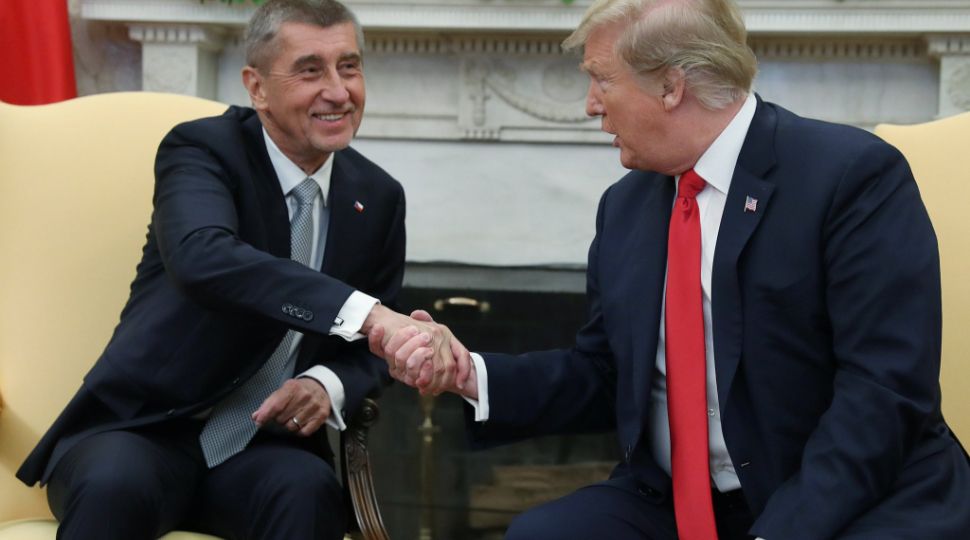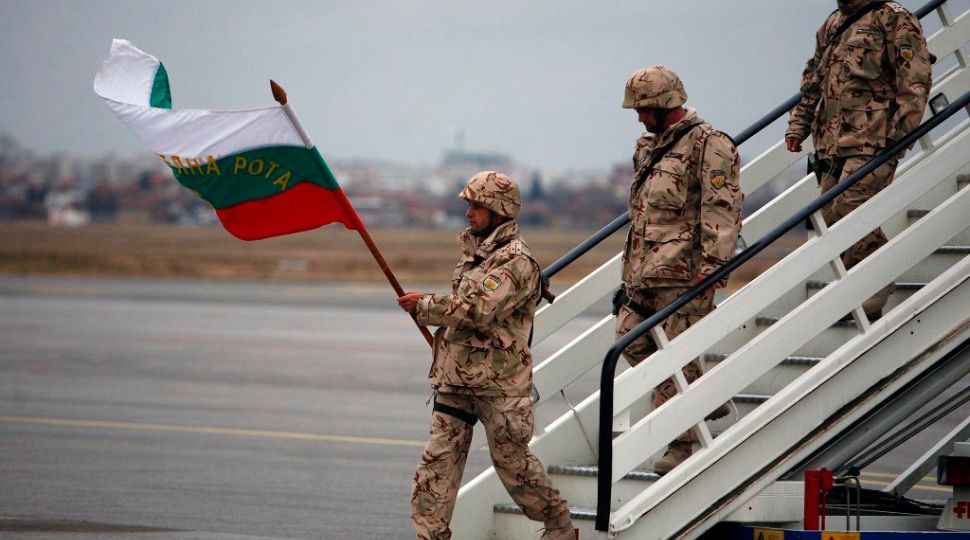
Pompeo was the first U.S. Secretary of State in seven years to pay a visit to Hungary. Part of the talks was on defence cooperation, including Hungary’s plans to purchase a medium-range air defence system (according to media reports, it is the Norwegian NASAMS system, equipped with U.S. AMRAAM missiles). During the visit, the extension of the 1997 bilateral defence cooperation agreement (DCA) was agreed. This regulates the possibility of stationing U.S. troops on Hungarian territory.
Differences and Convergence in Foreign Policy
During his visit, Pompeo presented the areas in which the U.S. expects Hungary to consider the American interests. These include a coherent NATO approach to Ukraine, diversification of energy sources, and a reduction in the political and economic influence of Russia and China. Despite this open formulation of expectations, the Hungarian authorities will maintain their current line in foreign and energy policy. Hungarian politicians (Prime Minister Viktor Orbán and Foreign Minister Péter Szijjártó) confirmed this in media statements later.
Towards Ukraine, Hungary will continue to represent a separate stance from the rest of the NATO members, justifying it by the dispute over the situation of the Hungarian minority in Transcarpathia. Hungary considers strengthening economic cooperation and the development of “EU strategic autonomy” fundamental for effective Russia policy. This concept is understood by the Hungarian authorities as a tool the Union can use to strengthen its position with respect to both the U.S. and Russia. Although Hungary considers purchasing gas from Romanian reserves in the Black Sea, it also considers Russia to be a reliable supplier of energy resources; therefore, the authorities support the construction of the Nord Stream 2 and Turkish Stream pipelines, which are to supply Russian gas to Central Europe, bypassing Ukraine. They take an ambiguous, and therefore unreliable, approach to the diversification of gas supply sources through the planned LNG terminal on the Croatian island of Krk. Officially, they exclude the purchase of U.S. liquefied gas by this route. At the same time, they are interested in obtaining 25% of the shares in this terminal. In the perception of the Hungarian authorities, Chinese investments do not constitute a threat. For more than 10 years, Huawei has had in Hungary the largest production and logistics centre outside of China. In the wake of an espionage scandal in Poland involving a Huawei representative, the head of the Hungarian prime minister’s office, Gergely Gulyás, said the Chinese company does not pose a threat to Hungary’s national security. He did not rule out Huawei’s participation in the construction of 5G infrastructure in his country.
The area where Hungary adapts to the U.S. expectations is the Middle East. The political cost of this is small, though, because Hungary does not conduct independent policy towards this region. Its relations with Middle Eastern countries serve as an instrument to achieve other foreign policy goals, including improving relations with the U.S. This has been one of the reasons for the intensification of Hungary-Israel relations starting in 2017. Together with the Czech Republic and Romania, Hungary blocked the adoption of an EU statement criticising the relocation of the U.S. embassy in Israel to Jerusalem. In February, a Hungarian trade representation opened there. Also, the relocation of the diplomatic mission cannot be ruled out. At the same time, after the U.S. left the nuclear agreement with Iran (JCPOA) in May 2018, Hungary-Iran talks were suspended at all levels. This contrasted with Hungary’s earlier approach, which, after lifting the international sanctions against Iran in 2015, gradually tried to rebuild economic relations with the country (e.g., by the end of 2017, four high-level bilateral meetings were held). In 2016, the Hungarian oil company MOL also imported Iranian crude oil (about 1 million barrels). In February 2017, during a visit by Iranian Vice President Ali Akbar Salehi to Budapest, joint investments in nuclear energy were agreed.
The Development of Bilateral Relations
In 2010–2016, the Obama administration openly criticised Orbán's domestic policy. Secretary of State Hillary Clinton, during a visit to Budapest in 2011, called for respect for media freedom and independence of the judiciary. The U.S. banned from entry six high-ranking Hungarian officials over corruption charges in 2014, which led to a diplomatic dispute. In response, Hungary sought to ease the U.S. pressure by engaging in defence cooperation, mainly by sending 150 troops to Iraq in 2015. The number of these troops was increased to 200 in 2017.
Orbán expected bilateral relations to improve under the Trump presidency, and, as a result, anticipated an increase in his room for manoeuvre in foreign policy. He was the first leader in the EU to officially support Trump’s candidacy in 2016. He now expresses his hope for the president’s re-election. However, the renewal of political relations took place only in 2018, with the change of the State Department’s approach to the countries of Central Europe. This meant a shift of emphasis from abiding by the rule of law in these countries to their engagement in limiting the growing influence of Russia and China.
The U.S.’s readiness to change its policy towards Hungary manifested itself, among other elements, in reactivating bilateral talks, including at the ministerial level in May 2018. Also, the State Department gave up a programme supporting independent local media in Hungary. However, the U.S. did not achieve the expected benefits. Hungary did not change its approach to Ukraine, hesitated to prolong the DCA, referring to the need to protect the country's sovereignty, and, in August 2018, handed over to Russia two Russian arms dealers caught in Hungary with the help of U.S. intelligence services, despite the Americans’ earlier request to extradite them.
Conclusions and Prospects
The Hungarian approach is essentially based on the assumption that defence cooperation is the only stable element of U.S. policy towards Central Europe. Therefore, its strengthening is the basis of bilateral relations. The level of Hungarian involvement in allied cooperation (through the extension of the DCA agreement, the purchase of American missiles, the participation of about 900 Hungarian troops in military missions, or the declaration of increasing defence expenditure to 2% of GDP by 2024) is a derivative of calculations aimed at reducing the tensions in bilateral relations. The Hungarian authorities anticipate that in return, the U.S. will not place much importance on their other political moves, which will allow them to maintain the current domestic policy and good relations with Russia and China.
This approach is possible due to the limited instruments of U.S. influence on Hungary, which does not assess a direct threat from Russia. Therefore, unlike other countries on NATO’s Eastern Flank, Hungary does not have to rely on U.S. security guarantees within the Alliance or seek an allied military presence on its territory. The inconsistent approach of the U.S. administration to NATO and Russia also makes it easier for Hungary, a country with little defence potential compared to the U.S., to foster such a stubborn stance. This also facilitates the implementation of the Hungarian foreign policy strategy. It is based on confrontation and simultaneous gestures on issues important for the Trump administration, for example, in Middle East policy. Besides, Hungary, being a NATO member with limited military potential, is not so significant that it can force the U.S. to give a firmer response.
Hungary intends to continue to base its energy security on gas supplies from Russia. Its plans to diversify the sources of raw materials, as well as declarations on the level of involvement in regional cooperation, must be treated with reserve. Further tightening of Hungary-Russia and Hungary-China relations should be taken into account. Therefore, in the long run, the likelihood of a dispute with the U.S. increases. It is the largest non-European export partner and the second-largest investor in Hungary, which makes economic cooperation the instrument of pressure of first choice. The U.S. administration may, for example, discourage companies from investing in Hungary or sharpen its approach to business disputes between the local authorities and American investors. The less transparent Hungarian law will be, the higher the risk of such disputes.







